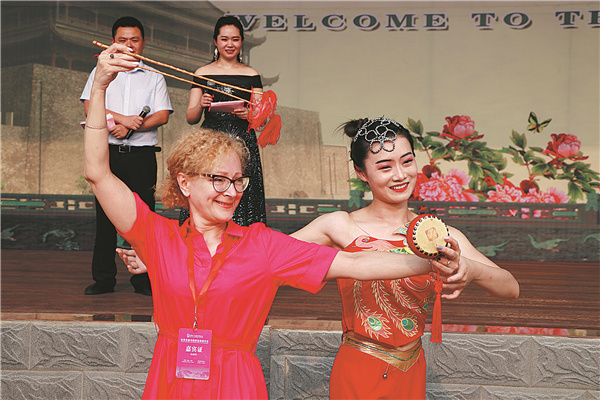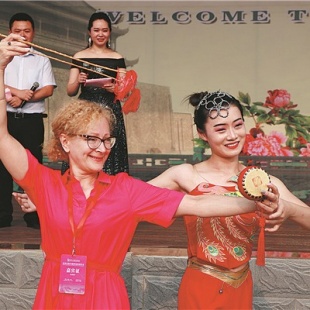A dance to remember


Debate over land privatization began, taking place at all levels of government. The Xiaogang experiment received support from leaders including Deng Xiaoping, and was hailed by the central government as a pioneer of reform, with the practice soon applied nationwide.
Under the reform, farmland was still State-owned, but farmers were able to contract the farmland on a household basis.
They eventually sublet their farmland to major farms and a lot of enterprises were attracted to the village to build factories.
Thus the villagers, more than 4,000, became shareholders of the village's collective fund and receive dividends once every two to three years, in addition to the incomes of their own individual businesses, according to Li Jinzhu, first Party secretary of Xiaogang.
In February, President Xi Jinping announced China's "complete victory" in its fight against absolute poverty.
In the past eight years, the country's 98.99 million impoverished rural residents were lifted from poverty and 832 counties and 128,000 villages were removed from the poverty-stricken list.
Xi said that shaking off absolute poverty is not the end, but the starting point of a new life and new endeavor.
He reiterated the significance of aligning poverty alleviation outcomes with the rural vitalization strategy to make the foundation of the fight against poverty more stable and its outcomes more sustainable.
"Last year, the villagers' per capita disposable income surpassed 27,600 yuan ($4,317)," says Li.
The country's urban residents per capita disposable income was 43,834 yuan for 2020, according to the central authorities.
It is just another reason for locals to gather in the square at the center of the village to dance and sing.





































